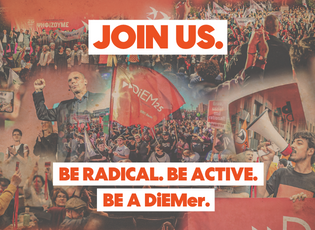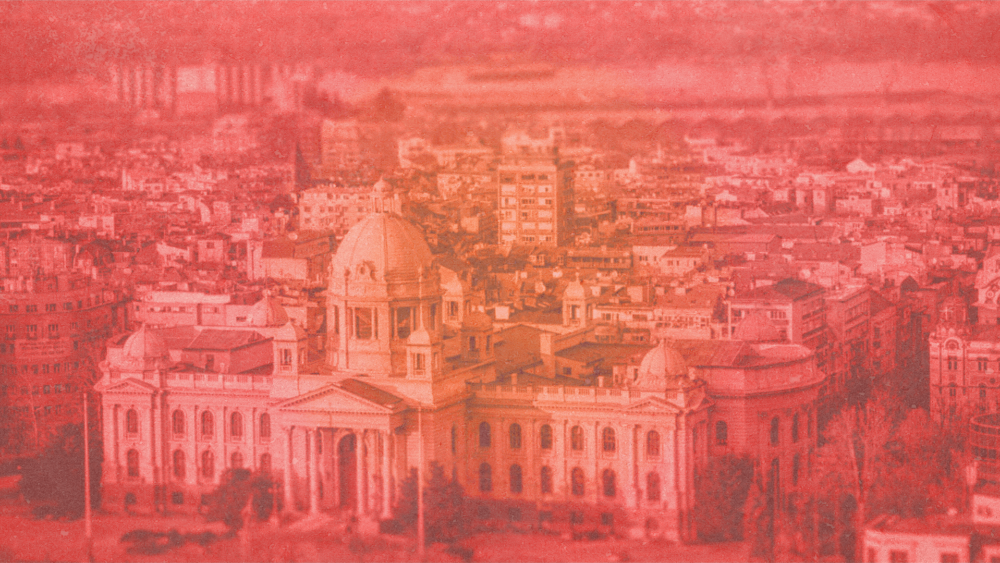In our most recent live stream, we posed the question of whether the European Union is worth joining. The conflict in Ukraine has once again raised this issue for non-EU countries who are either considering becoming a member or are in the process.
Some of those countries, including from ex-Yugoslavia, are at another crossroads. Should they join this EU or choose a different path? And if the latter, what other realistic options are there?
As informed by our panel, the matter is far from straightforward for any of the Balkan countries, with several factors playing a role in EU accession, regardless of whether a country predominantly does or doesn’t want to become a part of the bloc.
Serbia: Euroscepticism, Russia friendship and NATO dilemma
Maja Pelević explained the complexities regarding Serbia and its potential accession to the EU. Attitudes have changed along its arduous mission to join since 2000, and the war in Ukraine has added a new element to the debate.
“It’s quite funny to say [that Serbia is in] ‘advanced stages’ when our process of becoming an EU member started in the early 2000s, 22 years ago, after the fall of Milosevic and getting the first democratic government,” Maja began.
“In a way we have been going by baby steps towards EU integration and yet the end is not near. From 2019 to 2021, no new clusters were opened for getting an EU membership, and now recently we are talking about Ukraine becoming a full member of EU, not mentioning these countries that have been waiting for more than 20 years.

“And now I think the new date we have been given is 2030. So it’s like 30 years of waiting to become a full member of the EU. And we have been doing a lot of things [in this time] that we had to do towards our ‘masters’, thinking about us in a way as a non-sovereign country.
“I think this is also very important to know that it’s been a very tough path for 30 years. So it’s not weird to see that, here in Serbia, in 2022, you have Euroscepticism and I’m not sure, if there was a referendum, how many people would say they would enter the EU. Because now I think that 80% of people, according to recent polls, support Russia.
“These historical, cultural and other emotional ties we have to Russia are very strong here – they are not realistic in any way – and I think the only thing we are doing at this point in Serbia, in this difficult situation, is depend on other countries. We depend on Russian gas – [Serbia] got the gas from Russia for a third of the price that Europe was getting it.
“So what we are doing now is trying to gain some kind of ‘micro-sovereignty’. We are now not in a non-aligned position but in a ‘too-aligned’ position where we have to grab whatever we can. Because in some way we are completely sure that the EU doesn’t want us. We are completely irrelevant, they don’t want us, we are surrounded by NATO countries, we are surrounded by EU countries…
“So in a way when we think we are relevant, we are not relevant. That is a big problem. And also we are not relevant to Russia either, because if we imposed sanctions on Russia, nothing would happen either.
“So our only position at the moment is a realistic one: ‘how are we going to manage to get through this winter?’ And that is what I think Serbia is trying to do. And I think it’s a big problem to ask for Serbia to do something that could cause the whole country to collapse.
“These baby steps that we are doing towards EU [membership], we know that we will not enter EU before we enter NATO [but] Serbia will never enter NATO because it was bombed by NATO in 1999.
“At the end of the day, I also think it is a question of Kosovo – we have to mention it even though it’s not popular. But it is something that I think Serbia could say: ‘what is the difference between the situation in Ukraine between the situation we had in Kosovo in 1999?’”
‘Montenegro needs the EU to save its constitution’
Montenegro’s situation is different to Serbia’s in that the former seems eager to join but is prevented by the powers that appear to control matters in the country, as Dušan Pajović explains.
“Maybe we don’t agree on some points but we agree on the core – that there is no ex-Yugoslavia, no Western Balkans, it’s really country specific,” Dušan said.
“I will speak in terms of Montenegro – we have our history, our current and previous burdens, our own tensions, and none of that is anymore in alignment with Yugoslavia, neither EU nor Russia, that just doesn’t exist.
“Why is it contextual? The Euro has been in Montenegro since 2002, we have had multinational banks for decades, we have a neo-colonial approach from both sides… but after 30 years after the same party ruling, we replaced them with extreme right-wing conservatives, extreme right-wing Serb conservatives.
“But it’s incredibly important to stress here – it’s not ethnical division in Montenegro, it’s ideological.
“So when we look at the census before the war in the 90s in Montenegro, you’d see that 90% of people were Montenegrins, and then it stayed like that for a few years and when the big parties split into neoliberal Montenegrins and conservative Serbs, people chose one of those nations as the pool of their ideologies.
“It’s important to stress that we in Montenegro don’t have consensus on anything – it’s always 51-49% – but we have a consensus on one thing, which is EU integration.”
“Before the extreme right-wing won, we had 80% of people up for joining EU and now, after Russia’s war, it’s still strong at 75%.”
“The only alternative offered to either Russia or EU is an initiative called Open Balkan, which a lot of figures say it’s just a big-state project and an easier way of smuggling cigarettes and drugs. That initiative is being supported by US and Russian, and it’s not being supported by EU. Montenegrins, Kosovars, Bosnians don’t want it, but there are these imperialistic intentions to dissolve the borders which is crazy for me to say now because I’m an anarchist, I’m for open borders, but we cannot talk about that in a phenomenological sense and neglect the realistic side of things.
“For example, right now in Montenegro, the biggest imperial narrative is currently pro-Russian [and] pro-Serbian because they have political power. They created the government through the church, our prime minister was appointed by the church, and put as first person who came into politics only because of their church affiliation but I don’t want to ignore other imperialisms
“Montenegro is not ready for another experiment at least in terms of geopolitics and we need to head towards EU if we want to save our constitution that says we are multi-national, civic country that is multi-religious and secular.”
Watch the full episode below
Do you want to be informed of DiEM25's actions? Sign up here










